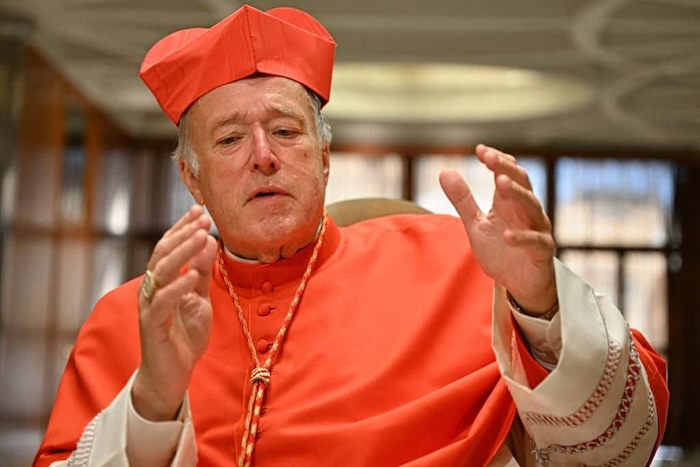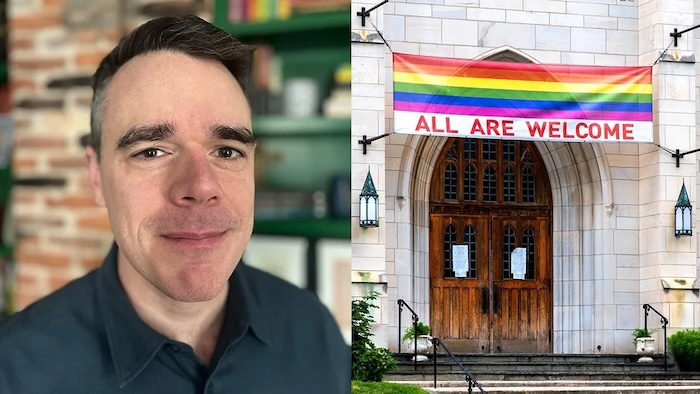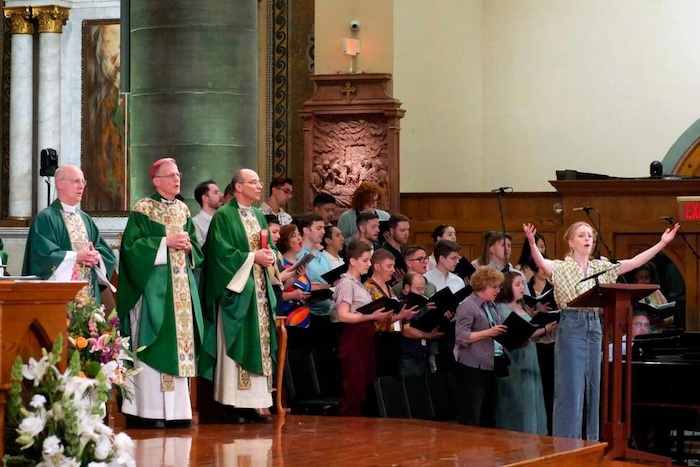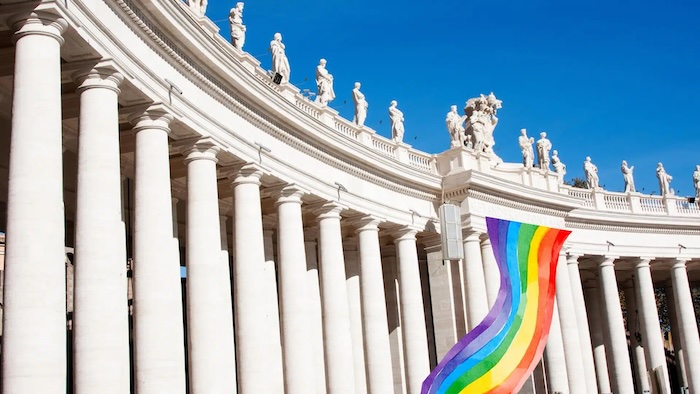
One of Pope Francis’s most vocal allies in the Church hierarchy in the United States has criticised the reaction among some Catholics in the country to Fiducia Supplicans.
Cardinal Robert McElroy of San Diego has said that while it’s fine for a priest concerned about protecting the institution of marriage to refuse to offer blessings of persons in same-sex relationships, much of the opposition in the US to a Vatican document authorising the non-liturgical blessings of couples in irregular situations, including same-sex couples, is rooted not in doctrinal principle but what he called an “enduring animus” against gays and lesbians.
“It is wholly legitimate for a priest to personally decline to perform the blessings outlined in Fiducia because he believes that to do so would undermine the strength of marriage,” the cardinal said on 16 February.
But, he went on to say, “it is particularly distressing in our own country that the opposition to Fiducia focuses overwhelmingly on blessing those in same-sex relationships, rather than those many more men and women who are in heterosexual relationships that are not ecclesially valid.”
McElroy, who’s widely seen as a leader of the progressive wing of the US Church and a strong Francis supporter, added: “It is crucial to emphasise that Fiducia simply clarified questions about the permissibility of a priest pastorally blessing persons in irregular or gay unions in a non-liturgical setting and manner. No change in doctrine was made.”
McElory didn’t specify which sorts of non-ecclesially valid relationships he had in mind, but couples who live together outside of marriage would come under this.
“If the reason for opposing such blessings is really that the practice will blur and undermine the commitment to marriage, then the opposition should, one thinks, be focusing at least equally on blessings for these heterosexual relationships in our country,” he said.
“We all know why it is not,” McElroy said, attributing it to “an enduring animus among far too many toward LGBT persons”.
Noting that Fiducia Supplicans has stirred intense debate around the world, including a statement from the bishops of Africa to the effect that such blessings would be inappropriate in their cultural context, McElroy cited these “diverging pastoral paths” as a positive example of decentralisation.
“We have witnessed the reality that bishops in various parts of the world have made radically divergent decisions about the acceptability of such blessings in their countries, based substantially on cultural and pastoral factors as well as neo-colonialism,” he said.
“This is decentralisation in the life of the global Church,” McElory said, implying that such differences in principle can be positive, reflecting adaptation to local cultures.
Nonetheless, he insisted that decentralisation should not become an excuse for anti-gay prejudice.
“This decentralization must not obscure in any manner the religious obligation of every local church in justice and solidarity to protect LGBT persons in their lives and equal dignity,” he said.
McElroy, 70, was speaking during a session of the Religious Education Congress sponsored by the Archdiocese of Los Angeles, the largest annual Catholic gathering in North America, on the subject of Pope Francis’s ongoing Synod of Bishops on Synodality.
McElroy said that in the listening sessions which led up to last October’s month-long meeting of the synod in Rome, issues related to the LGBT+ community loomed large.
“The searing question of the Church’s treatment of LGBT+ persons was an immensely prominent facet of the synodal dialogues,” he said. “Anguished voices within the LGBT communities, in unison with their families, cried out against the perception that they are condemned by the Church and individual Catholics in a devastating way.”
McElroy conceded that among the bishops and other participants gathered in Rome, there was disagreement on the subject, listing it among what he called areas of “deep divide” in the assembly. The other areas included how to empower laity without undercutting the hierarchical nature of the Church, the extent and limits of inculturation and decentralisation, and the possible ordination of women deacons.
McElory also described areas of strong consensus in the meeting, such as the need to open up more roles in the Church to laity. He cited the example of how in his own diocese he was unable to name a veteran administrator to the role of “moderator of the curia” because, under existing church law, that role is restricted to priests.
As a result, McElroy told the crowd, he simply appointed the layman as “vice-moderator of the curia” and refused to select a moderator. He predicted that when the Synod of Bishops reaches its conclusion this October, reforms on such matters could come quickly.
“I think there will be a lot of progress on questions like this,” he said.
In terms of the single most powerful theme to emerge from last October’s summit, McElory said it was the sense that the time has come for a “paradigm shift” with regard to the inclusion of women in the Church.
McElroy said that while there were contrasting opinions on women deacons, a more “full-bodied” discussion ensued beyond a “binary” yes or no. For example, he said there was some discussion of perhaps ending the transitional diaconate, which would make ordination as a deacon the final step before priesthood.
Doing so, McElroy said, might sever the connection between the diaconate and the priesthood, which “could make it easier to have women deacons”.
In response to question about the perception that certain American bishops are anti-Francis, McElroy said the political dimension is less important than a bishop having a pastoral orientation.
“The ultimate criterion for a bishop is, is he pastoral? The question of whether he’s strongly pro-Francis, medium Pope Francis, Okay but not great with Pope Francis, leaning for or against, is secondary,” he said.
Going forward, he explained, a major practical challenge for the Church will be to find ways to make it more participatory and rooted in listening, but without replicating the cumbersome system of the synod itself.
“The process of discernment used in Rome is far too time-consuming to use with regularity in parish and diocesan life and decision-making,” he said. “It won’t work here.”
Instead, McElroy called for “analogical methods of discernment” which would be “practical for general use in our diocese and our parishes and groups of faith”.
With regard to Catholic doctrine, without offering specific examples McElroy suggested that in general it is time for change.
“It is becoming clear that on some issues, the understanding of human nature and moral reality upon which previous declarations of doctrine were made were in fact limited or defective,” McElroy said.




